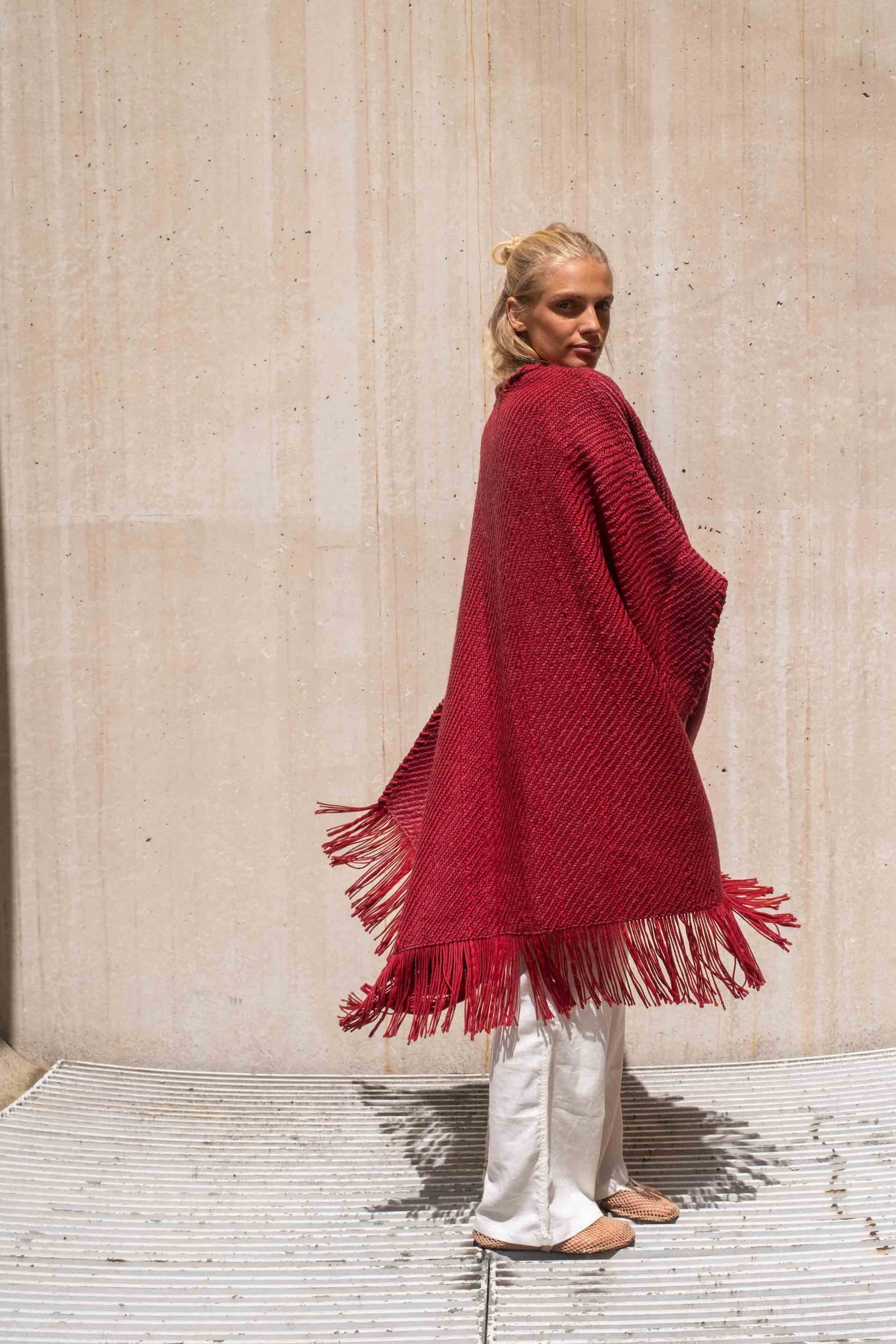Sustainability
Supply chain traceability:

Reversing Climate Change:

Circular Fashion System:

Efficient use of water and energy:

Respectful and secure work environments:

Sustainable material mix:

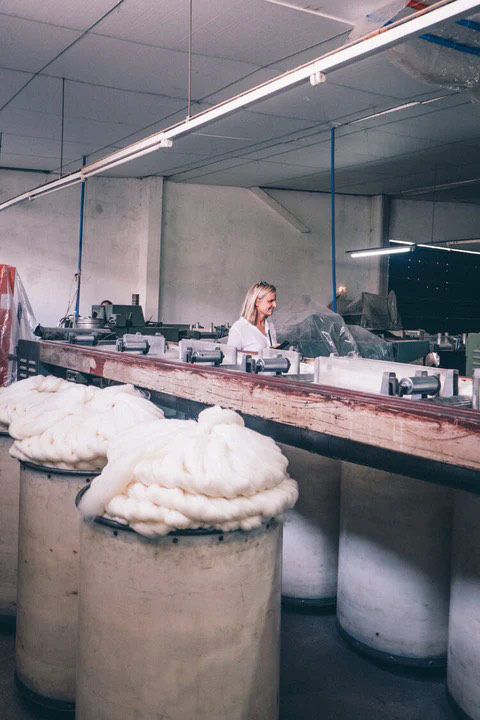
Supply Chain Traceability
We carefully select and personally know every stakeholder in our supply chain.
Our Merino wool is sourced in Uruguay and Argentina from sheep herded by a local shepherd. In case you were wondering: the controversial practice of mulesing does not exist in Uruguay and in Argentina. We employ local spinners, yarn dyers, weavers, and finishing teams to spin, kettle dye, weave, and package our designs.
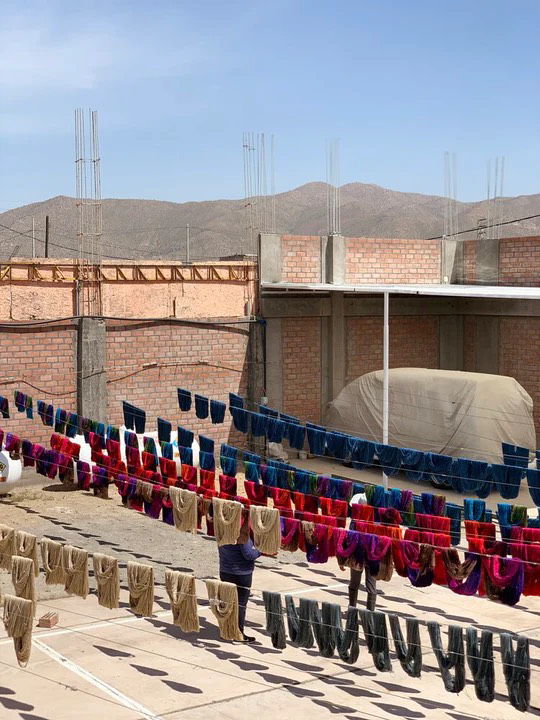
Reversing Climate Change
Our dyers take advantage of the 320+ days of sunshine to naturally dry our yarns. No heavy machinery, no energy consumed.
We are proud to produce only what has been ordered, avoiding overproduction and waste.
All packaging is made from recycled materials.
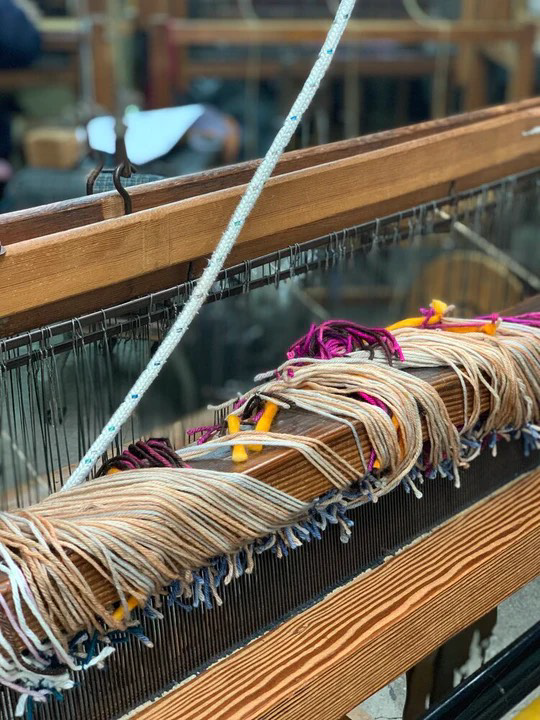
Circular Fashion System
Merino wool is washable, UV resistant, and particularly durable. Merino wool is 6 times stronger than cotton.
Merino wool is therefore particularly suited for recycling. Our leftover yarn will be upcycled into new products.
From Summer 2020 onwards, our customers will be able return old styles to us and will in exhange receive a voucher of EUR 100 that can be used towards a new WEHVE purchase.
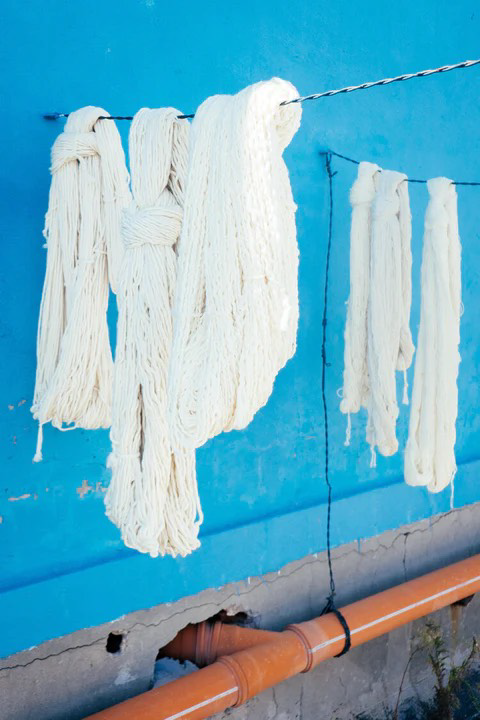
Efficient use of water and energy
The Merino wool we use at WEHVE is naturally stain-repellant and selfcleaning. Less washing saves significant amounts of water and energy.
All of our colorants meet OEKO-TEX and 1907/2006 CE standards, ensuring our yarn is free of harmful substances.
Viscose production wastes a lot of water, so we've replaced it with Tencel. Tencel is a sustainable lyocell material (we work with the Austrian company Lenzing).
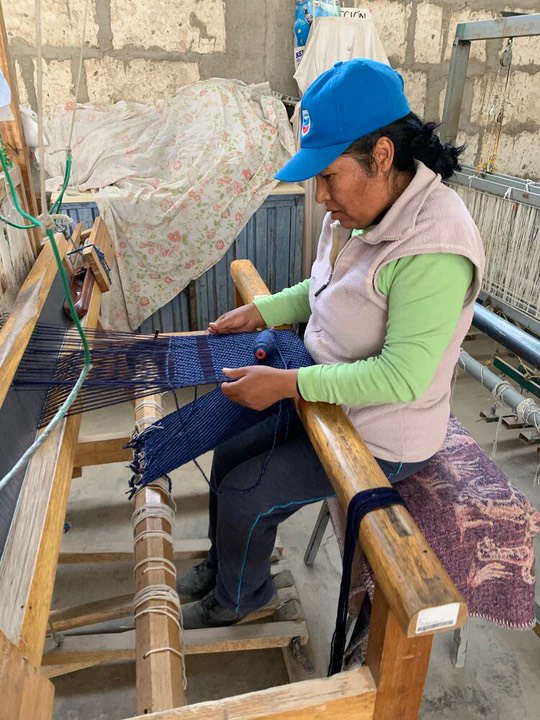
Respectful and secure work environments
Our weavers are organised in cooperatives, working 5 days a week in shared ateliers in their village or in the back of their homes.
There is no child labour amongst our weavers.
We pay our weavers their asking price, which is superior to local prices.
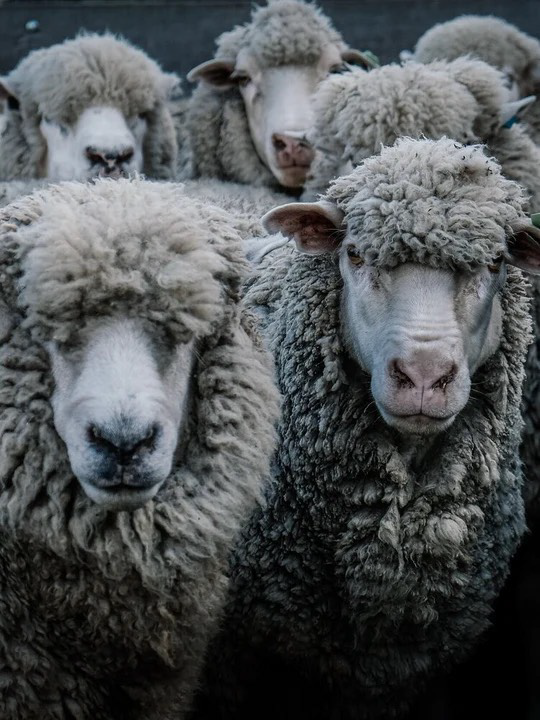
Sustainable material mix
We only use natural materials.
Merino wool is renewable and biodegradable–the fibre will naturally decompose in soil, giving nutrients back to the earth.
Merino forms the basis of all our styles, we like to combine it with Tencel, Alpaca and Tanguys cotton from Peru and occasionally Silk and Cachemire we source in Italy.
